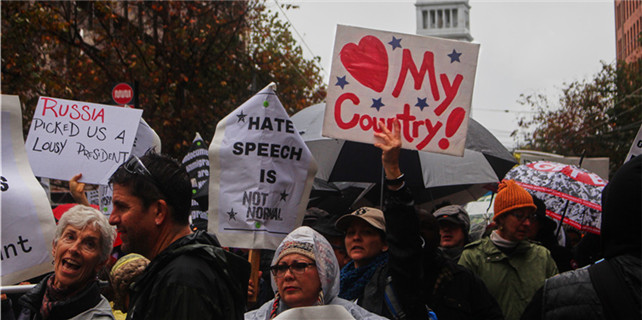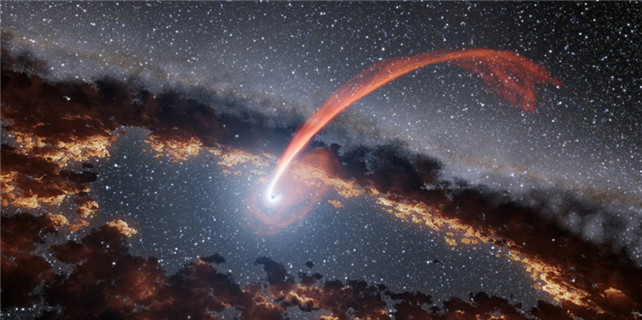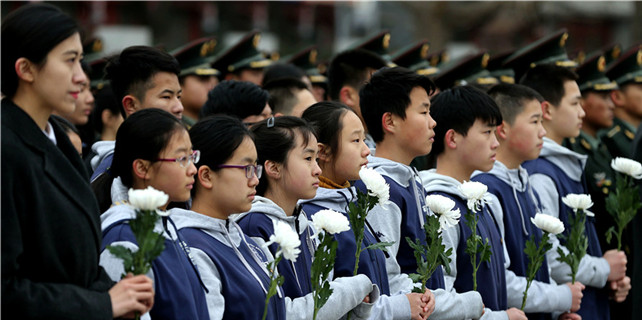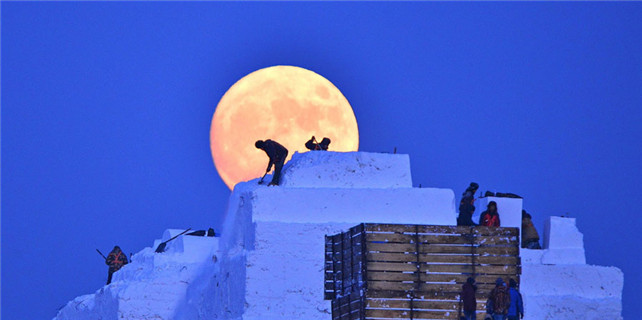US government being hypocritical in accusing others of war on media
Updated: 2016-12-16 07:45
By Chen Weihua(China Daily)
|
||||||||
Sarah Sewall, the US under secretary of state for civilian security, democracy and human rights, spoke recently of how freedom of information and freedom of the press form the bedrock for US foreign policy.
She lashed out at China and Russia, saying that a recent report found that the Chinese government and its legions of helpers write nearly a half billion fake posts a year, and that the Russian government spends at least $400 million a year on its propaganda machine of bots and trolls and factories of false content to undermine trust in independent media.
She then claimed that the US ramped up support in Europe for civil society and media most vulnerable to Russian pressure by more than 50 percent to over $85 million.
Sewall's allegations against the Chinese and Russian governments are yet to be substantiated, while her admission that the US government spent $85 million on propaganda in Europe raises questions about the US government meddling in its media.
Sewall quickly left after the six-minute speech she gave at a seminar in honor of the 250th anniversary of Sweden's Freedom of the Press Act.
The event touched on much of the challenges the media face in the US today, especially under President Barack Obama's administration.
In the 2016 World Press Freedom Index by Reporters Without Borders, the US ranked 41st out of 180 countries. Its standing in 2015 was 49th. Such a relatively low ranking, behind Slovenia (40), Ghana (26) and Namibia (17), hardly looks like the robust media freedom that Sewall touted.
The Reporters Without Borders report blasted the US government's "war on whistle blowers who leak information about its surveillance activities, spying and foreign operations, especially those linked to counter terrorism" and the lack of a "shield law" in the US to help journalists protect confidential sources.
Sam Sanders of National Public Radio reported that Obama's Justice Department has cracked down on reporters in an effort to prevent leaks; it also set a new record for withholding access to government files under the Freedom of Information Act (despite Obama calling for a "new era of openness" on his first day in office).
A study by the Columbia Journalism Review found that relations between the White House and the news media have never been so controlled in the past 50 years, saying that the "White House is determined to conceal its workings from the press, and by extension, the public."
New York Times reporter James Risen last year called the Obama administration "the greatest enemy of press freedom in a generation". Risen was beseeched by the Obama government to identify his confidential sources for parts of a 2006 book in which he detailed a CIA plan to undermine Iran's nuclear program.
At the seminar, veteran US journalist Marvin Kalb shared his personal experiences covering the Vietnam War and talk-ed about how presidents Lyndon Johnson and Richard Nixon did not like his reporting that was critical of US foreign policy. Some reporters in his time ended up on the "enemies list", their phones being tapped and income tax returns scrutinized every year.
He lamented that there are many ways the government even in a free country can put the pressure on a reporter, but added that many reporters acted more aggressively under such pressure.
Jeffrey Herbst, president and CEO of Newseum, noted the high societal pressure on journalists in the US today. Feed-back on reporters' stories often includes hateful or vitriolic comments. He admitted that some US reporters tend to censor themselves under such a public backlash.
It would be good if Sewall had also reflected on the US government's war on the media before pointing fingers at other governments.
- Germany deports 50 rejected Afghan asylum seekers
- Merkel reelected as chairman of CDU party
- Lebanese women protest over unreasonable rape law
- World's longest railway tunnel gets go-ahead for commercial use
- Leaders express condolences over Fidel Castro
- Trump to nominate retired General Mattis for Pentagon

 Duchess of Cambridge celebrates a century of UK's Cub Scouts
Duchess of Cambridge celebrates a century of UK's Cub Scouts
 Cableway brings hope to orange farmers
Cableway brings hope to orange farmers
 Lantern show illuminates Shanghai Happy Valley
Lantern show illuminates Shanghai Happy Valley
 Election protests continue in Bay Area
Election protests continue in Bay Area
 Staring at the space - best NASA photos of the year
Staring at the space - best NASA photos of the year
 Thousands pay tribute to victims of Nanjing Massacre
Thousands pay tribute to victims of Nanjing Massacre
 Stunning supermoon lights up the sky in China
Stunning supermoon lights up the sky in China
 Cristiano Ronaldo wins fourth Ballon d'Or
Cristiano Ronaldo wins fourth Ballon d'Or
Most Viewed
Editor's Picks

|

|

|

|

|

|
Today's Top News
If the Port of Oakland is any indication, US-China trade is robust
Fed hike may affect China's capital outflows
Startup backed by investors from China unveils electric car
Kissinger, Cui assert policy of one China
Technology to ease path of Spring Festival train passengers
Urumqi to build citywide free Wi-Fi network
16 medical staff members help 140kg woman deliver baby
Ex-Party chief of Nanjing imprisoned
US Weekly

|

|









